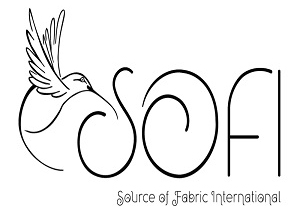Fabric sourcing is one of the most crucial aspects of the fashion and design industry. As a designer, knowing where and how to source high-quality fabrics can make or break your collections. In this guide, we’ll dive into the top 10 fabric-sourcing tips every designer should know. Whether you’re new to the industry or looking to refine your process, these tips will help you source fabrics more efficiently and cost-effectively.
1. Know Your Design Needs
Before you begin fabric sourcing, clearly define your design needs. Ask yourself what type of fabrics you require for your collection—are you looking for natural fibers like cotton or linen, or perhaps something more luxurious like silk or velvet? Identifying the properties you need—texture, weight, durability, and drape—will narrow down your options, saving you time and effort.
2. Research Reliable Suppliers
One of the top fabric-sourcing tips every designer should know is to research and build relationships with reliable suppliers. Start by compiling a list of trusted suppliers, both local and international. Consider attending trade shows or fabric markets to discover new vendors and compare fabric quality in person. Make sure to read reviews and ask for recommendations to ensure that the suppliers you choose are dependable.
3. Request Fabric Samples
Never skip the sampling process. Request fabric samples from your suppliers before placing large orders. This allows you to inspect the quality, texture, and color of the fabric in person. Testing the fabric for durability and performance is essential to ensure it fits your design vision and will hold up in production.
4. Understand Minimum Order Quantities (MOQs)
MOQs are a common hurdle for designers, especially those who are just starting. A minimum quantity of fabric must be purchased from many wholesale fabric wholesalers, which might result in a significant up-front expense. It’s important to find suppliers that offer reasonable MOQs based on your business size or to negotiate lower quantities if possible.
5. Consider Sustainability
Sustainable fabric sourcing is becoming increasingly important for designers. Opting for eco-friendly fabrics, such as organic cotton, bamboo, or recycled materials, not only benefits the environment but also enhances your brand’s appeal to eco-conscious consumers. Look for suppliers who offer certified sustainable fabrics and commit to ethical sourcing practices.
6. Stay Updated on Industry Trends
Staying informed about fabric trends is another valuable fabric-sourcing tip. The fashion industry evolves rapidly, and keeping up with trends can help you source fabrics that are in demand. To remain on top of trends, follow trend-predicting firms, visit trade exhibitions, and subscribe to industry periodicals.
7. Negotiate Prices and Payment Terms
Negotiation is key when dealing with wholesale fabric suppliers. Don’t hesitate to negotiate prices, especially if you’re placing large orders. Suppliers may be willing to offer discounts or flexible payment terms to secure long-term relationships with designers. Be upfront about your budget and explore potential deals to get the best value for your money.
8. Test Fabrics for Colorfastness and Durability
One common mistake many designers make is neglecting to test fabrics for colorfastness and durability. Fabrics that fade or shrink after washing can ruin a collection. Always test a sample for washing, dry cleaning, and ironing to ensure the fabric maintains its quality throughout its lifecycle.
9. Source Locally When Possible
While international suppliers offer a wide variety of fabrics, sourcing locally can save you on shipping costs and lead times. Local suppliers often have more flexibility in accommodating small orders and can provide faster delivery. Plus, building relationships with local suppliers may lead to more personalized service and better deals.
10. Plan for Lead Times and Availability
Fabric sourcing requires strategic planning, especially when it comes to lead times. Different suppliers may have varying production schedules, especially if you’re sourcing custom or rare fabrics. To avoid production delays, always confirm the availability of fabrics and lead times well in advance.
Conclusion: Trust SOFI for Your Fabric Sourcing Needs
At SOFI, we understand that fabric sourcing is a critical aspect of every designer’s work. As a wholesale fabric supplier and sourcing expert, we offer a wide range of fabrics, from sustainable materials to high-end textiles. With our deep industry knowledge, competitive pricing, and reliable service, SOFI is here to help designers source the perfect fabrics for their collections. Allow us to help you realize your imaginative dreams.


